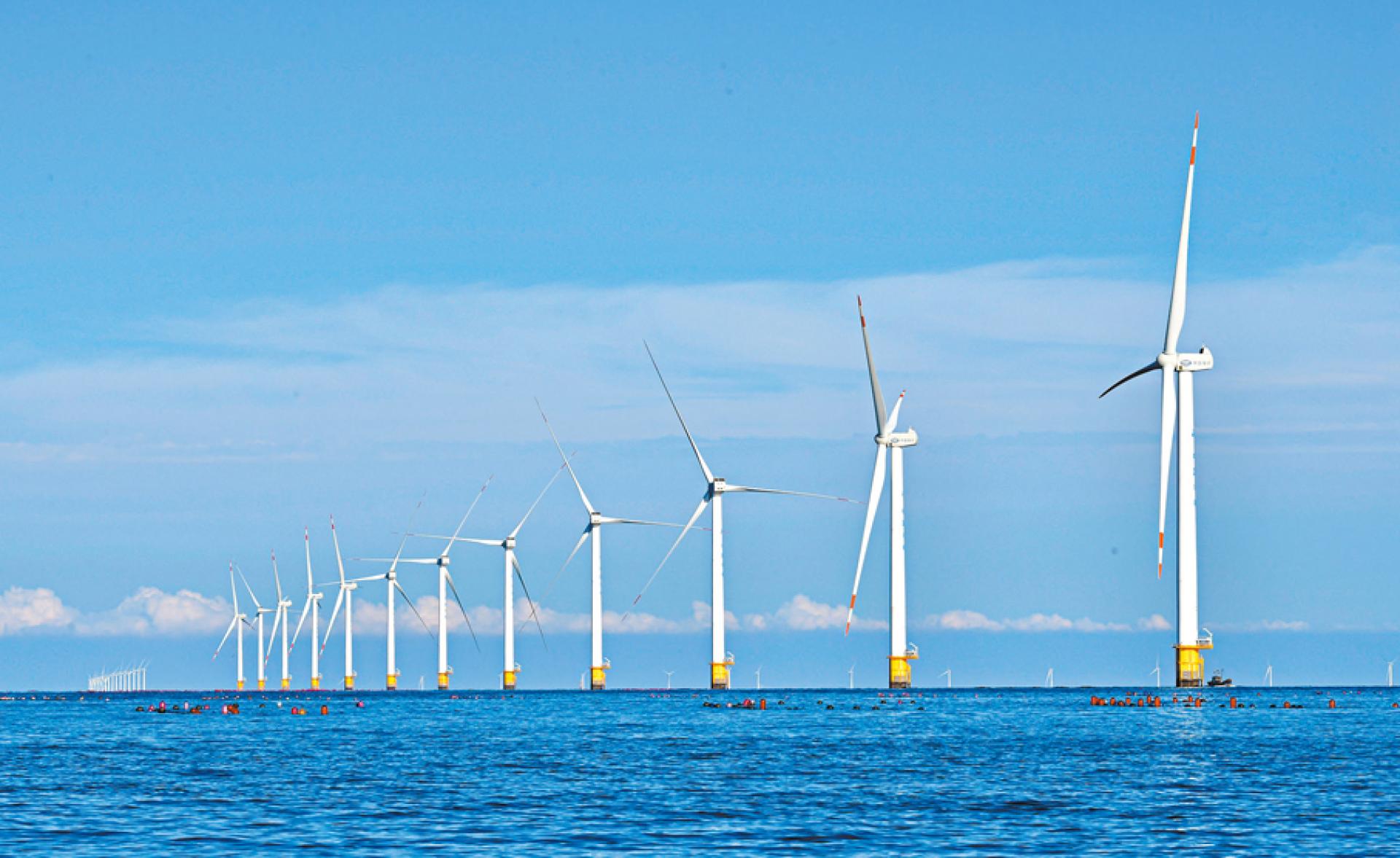The Financial Times reported that China is accelerating its green energy transition, moving away from fossil fuels. In July this year, China achieved its target of installing 1,200 gigawatts (GW) of solar and wind capacity, six years ahead of schedule, enough to supply electricity to hundreds of millions of homes each year. Furthermore, new solar and wind power projects under construction in China account for about two-thirds of the global total.
The report pointed out that to transmit renewable energy generated in China's remote areas to cities and factories that need it, China is expected to spend about $800 billion (about HK$6.2 trillion) by 2030 to modernize the power grid and its software. This is a step toward achieving the goal of peaking carbon emissions by 2030 and achieving carbon neutrality by 2060. The rapid development of clean energy in China has a significant environmental impact not only domestically for its 1.4 billion people and businesses but also on the planet. Dong Xuyang, an analyst at Sydney-based independent think tank Climate Energy Finance (CEF), stated, "Considering the scale of China's developments, achieving or exceeding each set energy transition goal will have a profound impact on climate and our global emission reduction goals."
Investment in Transmission Projects Surpasses the U.S.
Scott Kennedy, a senior advisor at the Center for Strategic and International Studies and a China industry expert, said that China’s rapid adoption of green technology, and subsequent long-term reduction in energy import dependence, would also affect China's geopolitical influence. China is poised to enhance domestic technology manufacturing capabilities, and other countries will rely on these technologies to achieve their own green transitions. This supports China's plan to promote growth through the export of clean technologies, including wind turbines, solar panels, electric vehicles, and lithium batteries, "This is a positive reinforcement of China's decarbonization strategy. Since China dominates in this field, it helps align climate policies with energy security and economic strategy policies. On one hand, China may greatly reduce its dependence on other countries, while on the other hand, it may make other countries more dependent on China."
Li Shuo, director of China Climate Center at the Asia Society Policy Institute, stated that China's technological progress has led to a significant decrease in the cost of renewable energy and large-scale batteries. The cost competitiveness of hardware is the simplest way for China to achieve its goals and make progress. Therefore, maintaining the growth speed and scale of green-focused capital expenditures is crucial for China. According to CEF data, in the first seven months of this year, China invested 294.7 billion RMB in transmission projects, an increase of 19% compared to the same period last year. In contrast, the Biden administration in the U.S. announced a plan last year to cover 58 transmission projects with only $3.5 billion (about HK$27.2 billion).
Establishing a More Mature Electricity Market
Many experts believe that due to the increase in the export volume of Chinese electric vehicles, batteries, and solar panels, the electrification of the transportation system, and the booming development of artificial intelligence (AI) and data storage, the growth rate of green energy in China surpasses the growth rate of its Gross Domestic Product (GDP). In addition to building batteries and transmission cables, a modernized electricity market is also needed, with a focus on real-time pricing and supply-demand information.
International Energy Agency (IEA) analysts Keisuke Sadamori and Rahul Tongia stated that China's power sector reform in the past three years has "clearly gained momentum," with over 20 provinces establishing pilot electricity spot markets, some of which are permanently operational. The long-term goal is to transform the existing inter-provincial pilot spot markets operated by the state grid into a national electricity market. Considering the potential impact on the climate, any progress China makes in establishing a more mature electricity market can play a key role in "the sustainable development of human society."
